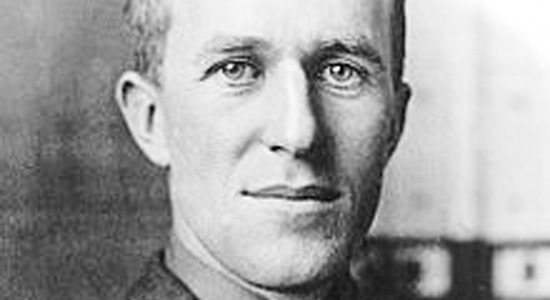Shearwater’s Jet Plane And Oxbow is an album that looks backward—to the recording technologies and sounds of the early ’80s—in order to interrogate the present and to contemplate the future. Shearwater’s moody, thoughtful style, built around Jonathan Meiburg’s dramatic, beautiful voice, turned toward rock with 2012’s Animal Joy, which now sounds like a stopover in the flight path toward Jet Plane. Meiburg used period-specific instruments; his guitar playing alludes to Adrian Belew’s work with David Bowie and Robert Fripp’s with Peter Gabriel; he integrates the stark sounds of Joy Division and early New Order. But the goal wasn’t nostalgia. Jet Plane doesn’t sound retro, nor does it sound like an homage. The allusions are there to create a sonic parallel to our time. Meiburg will be guest editing magnetmagazine.com all week. Read our new Shearwater feature.

Meiburg: It’s the story taking place outside the frame of this book—namely, all the events dramatized in Lawrence Of Arabia—that makes the one inside it so interesting. T.E. Lawrence was one of 20th-century England’s great myth-makers, and the heroic image we have of him is largely one that he created and managed—and which the British public, after all the horrors of World War I, desperately craved.
But after the official portraits in his Arab dress and the publication of Seven Pillars of Wisdom, Lawrence seems to have changed his mind, and did something truly remarkable, even perverse. He’d been promoted to Colonel in the British army, but he decided to throw away his rank and his name and enlist as a raw recruit in the RAF under a pseudonym, where he went through basic training and spent the rest of his life in its lower ranks until his death in a motorcycle accident. The Mint, written in economical, compassionate, blunt prose, is his account of the first years of that humbling journey, and it’s hard not to see it as a kind of penance for creating the legend of Lawrence of Arabia, which he later referred to as “a cad I’ve killed” Lawrence is said to have suffered from PTSD and depression, but lurking beneath the surface of this book, which he didn’t want published until after his death, is something else: remorse.
Video after the jump.






